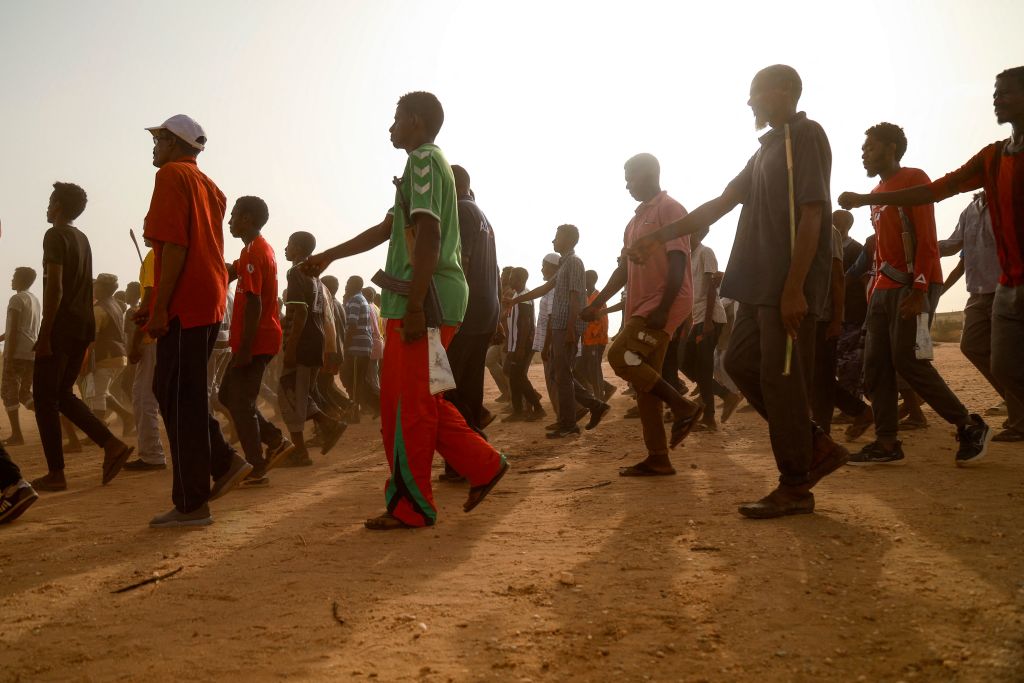ADF STAFF
Community leaders in Babanousa in Sudan’s West Kordofan State hoped their truce with the Sudanese Armed Forces (SAF) and paramilitary Rapid Support Forces (RSF) would prevent the violence that has devastated the country from consuming their community.
They were wrong.
The truce came after an assault by RSF fighters on the SAF’s 22nd Infantry Division the previous week that sent Babanousa residents fleeing for their lives. On November 30, one day after the truce was signed, two shells fell on the base, injuring one SAF soldier.
This is one of many signs that the fighting is expanding and threatening previously safe areas.
“What we are witnessing is that the war is taking on a life of its own and morphing into a multi-layered complex conflict involving multiple drivers, spilling over into neighboring countries and threatening regional stability,” Dr. Suliman Baldo, executive director of the Sudan Transparency & Policy Tracker said during an event hosted by the Center for Strategic and International Studies.
RSF has some control over the five federal states that make up Darfur and is pushing into areas further east like Kordofan.
“Hostilities have spilled over to new areas, such as Gezira, White Nile and West Kordofan states, placing even more civilians at risk as well as humanitarian operations,” the United Nations Assistant Secretary-General for Africa, Ghanaian diplomat Martha Ama Akyaa Pobee said. “The warring parties have reportedly carried out indiscriminate attacks, while also conducting targeted attacks against civilians, in apparent violation of international humanitarian law.”
On December 5, RSF fighters, led by Gen. Hemedti, burned the village of al-Tukma in South Kordofan state and fought with forces from the Sudan People’s Liberation Army-North (SPLA-N), an ally of the SAF, according to the Sudan War Monitor.
The incursion into South Kordofan followed other attacks the RSF has launched into Gezira and White Nile states in addition to West Kordofan.
“In this situation, the war seems to be expanding, it seems to be feeding on itself,” Baldo said.
The battle with SPLA-N fighters was the first reported during the current conflict that began in April, according to the Sudan War Monitor. Like other local militias, the SPLA-N has until recently taken a neutral position regarding the conflict between the RSF and SAF.
The RSF’s continuing spread across Sudan has prompted other militias, notably the Darfur-based Sudan Liberation Movement and Justice and Equality Movement to renounce their neutrality and side with the SAF. In the weeks since that announcement, militias in North Darfur and North Kordofan have joined the fight against the RSF, according to reporting by the Armed Conflict Location & Event Data Project (ACLED).
For its part, The SAF, headed by the country’s de facto leader, Gen. Abdel Fattah al-Burhan, remains in control of the Nile River corridor as well as eastern and northern parts of the country, including the Red Sea ports. Al-Burhan’s government operates largely from Port Sudan, although some military commanders remain in Khartoum and Omdurman where their military headquarters remain under siege by the RSF.
The SAF is conducting training camps for civilian volunteers in the east and appears to be preparing to shift them to areas of White Nile and al-Jazirah states south of the capital, possibly to break the siege of SAF territories in the capital, according to Sudan War Monitor.
In recent months, the RSF has gained large amounts of territory, including military bases and airfields, as the SAF has fallen back. The SAF, which relies largely on aircraft and heavy artillery to counter the RSF, have recently increased aerial attacks on RSF positions in Khartoum and elsewhere after a lull.
Northeast of Babanousa, residents of El Fula reported looting and lawlessness until the army deployed troops in the area, allowing life to return to normal. In late November, the Air Force bombed RSF fighters gathering near the El Fula power station ahead of the assault on the Babanousa military base.
As calm returns to Babanousa, local leaders are urging residents who have fled to return to their homes because many are living in the open with no protection from the weather.
“We are broadcasting continuous calls for return through mosque loudspeakers,” Babanousa leader Khareef told Radio Dabanga.

